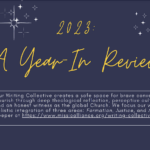Guest Post from Amos Yong
There is no doubt that Christian faith is exclusively in Jesus Christ. Jesus himself said, “I am the way, and the truth, and the life. No one comes to the Father except through me” (John 14:6, NRSV), and the apostles also declared, “There is salvation in no one else, for there is no other name under heaven given among mortals by which we must be saved” (Acts 4:12). Jews might anticipate a messianic deliverer who will reunite the people of God with Yahweh, but they do not hold, as Christians do, that Jesus is that Messiah. Muslims respect Jesus as a prophet but both subordinate his message to that of Muhammad’s and do not understand his claim, “The Father and I are one” (John 10:30), in a similar manner as Christians. In other words, Christians make unique and exclusive claims about Jesus as savior and revealer of the Father.
But Christians are not the only ones with unique and exclusive claims. In fact, all religious traditions, by virtue of the fact that they are what they are and not something else, have such claims. Some might even follow up on such claims with concomitant actions in ways that put Christians to shame. The apostle James agrees that, “faith by itself, if it has no works, is dead” (2:17).
Apologetically, then, I think actions speak louder than words. While on occasions thoughtful members of other faiths convert to Christ because of the rhetorical persuasiveness, intellectual coherence, and aesthetic attractiveness of the Christian message, these are exceptions that still, in time, ought to be followed by conversions of the heart. At this level, people come to Christ not because he is reducible to a set of ideas but because as the living “reflection of God’s glory and the exact imprint of God’s very being” (Heb. 1:3a), Jesus and his followers touch hearts, heal bodies, and transform lives and communities. Christian mission in a pluralistic world is most effective when clear proclamation of the message of the gospel – of Jesus as savior, healer, sanctifier, and coming king – is preceded and supported by works of love, mercy, peace, and justice.
Trinitarian mission in this holistic sense cannot be merely exclusivistic. Sometimes communal transformation invites Christians to work alongside people of other or no faith in order to effect change. There is no need to compromise on what we believe and confess in these cases, but there may be many good reasons to collaborate with others in order to bring about common good. Sometimes, we may even need to choose not to engage in certain actions, otherwise appropriate and even normative, if that might distract from or stumble the “weak” – as St. Paul, for instance, suggested not eating meat offered to idols in some contexts which might be fine in other contexts – and thereby undermine the witness to Christ needed for the moment. There are many levels at which Christians can and should address the plight of the unfortunate (orphans, widows, the impoverished, and people with disabilities, among others), and some levels of engagement summon, if not require, interfaith cooperation. Christians bear witness to the living Christ on these occasions by serving those in need; in fact, it may well also be that all so engaged minister to Christ himself. Effective missional witness in a pluralistic world, hence, involves addressing human heads (the cognitive dimension) and human hearts and hands (the embodied and social domains).
 Yet I also think that given the goodness, truth, and beauty that is refracted through other cultural and religious traditions, Christians should be motivated to dialogue with those in other faiths not only missionally but also for our ongoing self-understanding. By dialogue, however, I don’t mean only those formal occasions involving representative intellectuals but those circumstances when we can be hosts and guests of those in other faiths in order to get to know them, share our lives with them, and learn from them. The point of dialogue is that there is a mutuality of interaction, relationship, and transformation, just as when Peter met Cornelius (Acts 10). I mention being hosts and guests since sometimes, Christians are reluctant to embrace the latter role. It is simpler, and safer, to be hosts of those in other faiths since hosts establish the ground rules for the meeting. However, Jesus Christ himself is the paradigmatic guest himself in his incarnation even as the Holy Spirit desires to be the guest in every human heart. Christian missionaries have also been exemplary guests, as they are sent ones who enter into the spaces and times of others. Guests bring with them gifts – the gospel – but are also open to the hospitality of others, as Paul himself received such from the Maltese barbarians (Acts 28:1-10).
Yet I also think that given the goodness, truth, and beauty that is refracted through other cultural and religious traditions, Christians should be motivated to dialogue with those in other faiths not only missionally but also for our ongoing self-understanding. By dialogue, however, I don’t mean only those formal occasions involving representative intellectuals but those circumstances when we can be hosts and guests of those in other faiths in order to get to know them, share our lives with them, and learn from them. The point of dialogue is that there is a mutuality of interaction, relationship, and transformation, just as when Peter met Cornelius (Acts 10). I mention being hosts and guests since sometimes, Christians are reluctant to embrace the latter role. It is simpler, and safer, to be hosts of those in other faiths since hosts establish the ground rules for the meeting. However, Jesus Christ himself is the paradigmatic guest himself in his incarnation even as the Holy Spirit desires to be the guest in every human heart. Christian missionaries have also been exemplary guests, as they are sent ones who enter into the spaces and times of others. Guests bring with them gifts – the gospel – but are also open to the hospitality of others, as Paul himself received such from the Maltese barbarians (Acts 28:1-10).
And what do others have to offer besides physical nourishment? Do Christians really have anything to learn from others that they do not already know? The Day of Pentecost narrative suggests that God’s salvation history involves the redemption of many languages in order that the world might say, “in our own languages we hear them speaking about God’s deeds of power” (Acts 2:11). Languages we know are culturally embedded, as are religious traditions. Hence, the capacity of languages to declare the glory of God suggests that the highest aspirations of cultural and religious traditions may also be redeemed for divine purposes. This is not to say that each and every word of every language is sanctified in some absolute sense, nor is it to naively sanction all cultural and religious realities. It is to say that there is no reason why authentic dialogical and conversational interaction with people of other faith should not be catalytic for Christian self-transformation. Might not our interaction with religious others teach us humility, open us up to graces all humans hold in common, prompt question our own traditions (which are sometimes also encrusted in many ways by cultural accretions such that their original purposes have become obscured), and help us recognize that despite all we think we know, often in the face of reality we must be mute and wait for divine revelation to know how to “live, and move, and have our being”?
Christians should expect nothing less in faith. Not only do we now see through a mirror dimly (1 Cor. 13:12), but we worship and serve a living Christ who cannot be reduced to any set of propositions. In fact, only in the eschatological future will he be fully manifest: “when he is revealed, we will be like him, for we will see him as he is” (1 John 3:2). This is not to say that the future revelation of Christ will contradict what is known about him now from scripture and especially the dogmatic tradition, rightly understood. It is to say that there might be unexpected convergences that the eschaton will bring to light.
Evangelicals like to say that theirs is not a religion but a relationship. They are also primed, when they go on mission trips, to testify about their own lives being changed by the experience. I see no reason why interacting with people of other faiths ought not also to transform their lives by deepening their understanding of and relationship with the living Christ. Especially when led by the Spirit of Christ, Christian witness in a pluralistic world will surely bring about conversions to Christ; but it might also bring about Christian transformation, indeed revitalization and renewal.
 Dr. Amos Yong is Dean and J. Rodman Williams Professor of Theology of the School of Divinity at Regent University.
Dr. Amos Yong is Dean and J. Rodman Williams Professor of Theology of the School of Divinity at Regent University.
(This post appeared originally on Renewal Dynamics, the official blog of the Regent University School of Divinity and the Center for Renewal Studies at http://www.renewaldynamics.com






Missio Alliance Comment Policy
The Missio Alliance Writing Collectives exist as a ministry of writing to resource theological practitioners for mission. From our Leading Voices to our regular Writing Team and those invited to publish with us as Community Voices, we are creating a space for thoughtful engagement of critical issues and questions facing the North American Church in God’s mission. This sort of thoughtful engagement is something that we seek to engender not only in our publishing, but in conversations that unfold as a result in the comment section of our articles.
Unfortunately, because of the relational distance introduced by online communication, “thoughtful engagement” and “comment sections” seldom go hand in hand. At the same time, censorship of comments by those who disagree with points made by authors, whose anger or limited perspective taints their words, or who simply feel the need to express their own opinion on a topic without any meaningful engagement with the article or comment in question can mask an important window into the true state of Christian discourse. As such, Missio Alliance sets forth the following suggestions for those who wish to engage in conversation around our writing:
1. Seek to understand the author’s intent.
If you disagree with something the an author said, consider framing your response as, “I hear you as saying _________. Am I understanding you correctly? If so, here’s why I disagree. _____________.
2. Seek to make your own voice heard.
We deeply desire and value the voice and perspective of our readers. However you may react to an article we publish or a fellow commenter, we encourage you to set forth that reaction is the most constructive way possible. Use your voice and perspective to move conversation forward rather than shut it down.
3. Share your story.
One of our favorite tenants is that “an enemy is someone whose story we haven’t heard.” Very often disagreements and rants are the result of people talking past rather than to one another. Everyone’s perspective is intimately bound up with their own stories – their contexts and experiences. We encourage you to couch your comments in whatever aspect of your own story might help others understand where you are coming from.
In view of those suggestions for shaping conversation on our site and in an effort to curate a hospitable space of open conversation, Missio Alliance may delete comments and/or ban users who show no regard for constructive engagement, especially those whose comments are easily construed as trolling, threatening, or abusive.